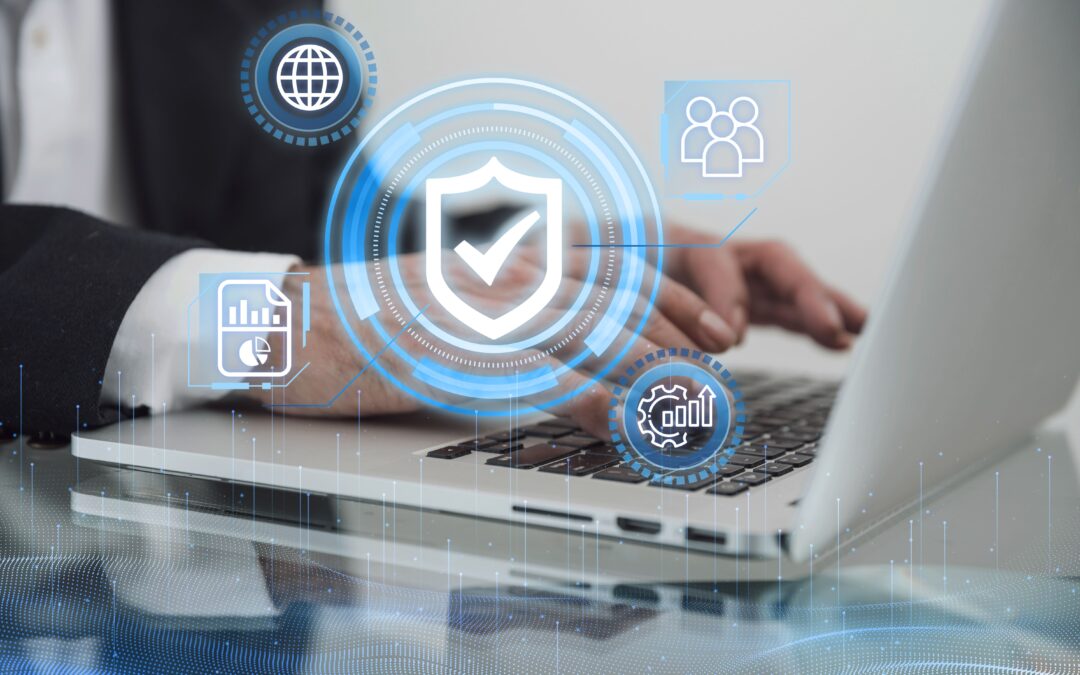In the digital age, businesses are more connected than ever, bringing enormous opportunities but also serious risks. Cybersecurity has shifted from being a secondary concern to becoming a fundamental pillar for any business, regardless of its size or sector. Cyber threats are constantly evolving, and the consequences of a cyberattack can be devastating, ranging from financial losses to irreparable damage to a company’s reputation. In this article, we will explore the importance of cybersecurity in modern businesses and how they can protect themselves against these threats.
What is Cybersecurity and Why is it Essential for Businesses?
Cybersecurity refers to the protection of systems, networks, and data against digital attacks aimed at stealing information, altering processes, or disrupting operations. As companies increasingly rely on technology for their daily operations, cybersecurity has become essential for protecting these digital assets.
Today, companies handle large volumes of sensitive data, from personal customer information to confidential business strategies. Any vulnerability in their systems can be exploited by cybercriminals, with potentially disastrous consequences. Therefore, cybersecurity is not just an investment in technology, but also an investment in business continuity and customer trust.
Major Cyber Threats Facing Businesses
Cyber threats are varied and increasingly sophisticated. Here are some of the most common and dangerous ones:
- Malware: Malware (malicious software) includes viruses, trojans, and spyware that can infiltrate systems to steal information or damage IT infrastructure.
- Ransomware: This type of attack encrypts a company’s data, and cybercriminals demand a ransom in exchange for restoring access. Many businesses have been forced to pay large sums to recover their data.
- Phishing: Phishing is an attempt to deceive a company’s employees through fake emails that appear legitimate, aiming to steal passwords or personal information.
- Denial of Service Attacks (DDoS): These attacks involve overwhelming a company’s servers with fake traffic, causing its website or online service to go down, leading to disruptions and financial losses.
These threats can not only paralyze operations but also lead to the loss of critical data and severely damage the company’s reputation.
Consequences of Not Properly Protecting Systems
Failing to implement effective cybersecurity measures can have serious consequences for any business. Some of the most common effects of a cyberattack or a security breach include:
- Data Loss: One of the greatest risks is the loss or theft of critical data. This can include confidential customer information, financial data, or intellectual property. Recovering lost data can be expensive and, in some cases, impossible.
- Reputation Damage: Customer trust is crucial for any business. If a security breach occurs, customers may lose faith in the company’s ability to protect their data, leading to customer churn and a decline in sales.
- Economic Costs: Fines and penalties for non-compliance with data protection regulations, such as GDPR in Europe, can be extremely high. Additionally, the costs of remediation and repair after an attack can add up to financial losses.
- Operational Disruptions: Cyberattacks can disrupt a company’s operations. A DDoS attack, for example, can take a website or an internal system offline for hours or even days, causing costly interruptions.
Best Cybersecurity Practices to Protect Your Business
To minimize the risk of cyberattacks, it is essential for businesses to implement good cybersecurity practices. Here are some key measures:
- Firewalls: Firewalls act as a barrier between a company’s internal network and external threats. Implementing robust firewalls and configuring them properly is one of the first lines of defense.
- Data Encryption: Encryption ensures that even if cybercriminals gain access to a company’s data, they cannot read it without the decryption key. This process is essential for protecting confidential information.
- Software Updates: Keeping all software up to date is crucial, as vulnerabilities in outdated versions of programs or operating systems are easy targets for attackers. Implementing automatic and periodic updates can prevent security breaches.
- Access Control: Limiting access to critical data and systems only to essential employees reduces the likelihood of a breach. It is advisable to use multi-factor authentication systems to better protect credentials.
The Importance of Cybersecurity Training for Employees
Although technological solutions are vital, the human factor remains one of the weakest links in the security chain. Employees can unknowingly facilitate an attack if they do not receive proper training. Some ways that cybersecurity training can protect the company include:
- Phishing Awareness: Many cyberattacks begin with a phishing email. Training employees to recognize suspicious emails and avoid clicking on links or downloading dangerous files can prevent attacks.
- Good Password Practices: Weak or reused passwords across multiple systems make attacks easier. Teaching employees to create strong passwords and use password managers can make a significant difference.
- Ongoing Training: Cyber threats constantly evolve, so cybersecurity training must be ongoing. Regularly updating employees on new threats and best practices is essential to maintain protection.

